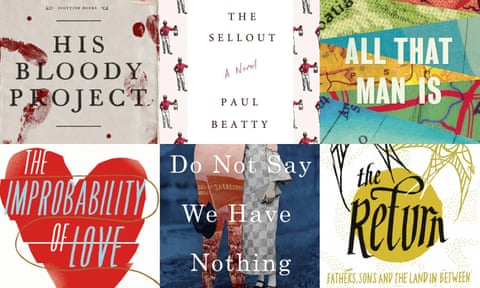Michal Shavit
Publishing director, Jonathan Cape
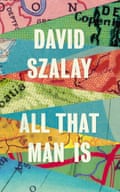
The book that made my year: David Szalay’s All That Man Is, a panEuropean novel replete with richly observed humanity that explores what it is to be a man in the 21st century. Rachel Cusk’s Transit – an outstanding novel about the meaning of suffering and how listening to the stories of others makes us who we are – was equally important and powerful. And at a time when we all need to laugh, as well as cry, Ian McEwan’s brilliant Nutshell brought us hilarity and premature wisdom from the womb.
Our book that deserved to do better: Stuart Dybek’s The Start of Something shows a master writer at work. These sexy, funny, brilliant stories from Chicago will surprise, entertain and enrich.
The book I wish I had published: Leonard Michaels’ Sylvia (Daunt). This short semi-autobiographical novella, cleverly republished by Daunt, is an intense love story between a young aspiring writer and a beautiful but troubled young woman in 1960s New York. When Sylvia’s depression emerges and her disturbances take hold, their fights become increasingly violent and their relationship becomes increasingly self-destructive. This is a book about love and pain that, like Elena Ferrante’s Days of Abandonment, stays with you a long time after you finish it.
Bella Lacey
Editorial director, Granta and Portobello
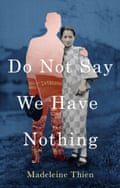
The book that made my year: Do Not Say We Have Nothing by Madeleine Thien, a profound and significant novel about revolutionary China that earned rave reviews and a shortlisting for the Man Booker. Although it didn’t win, Thien was awarded the two big Canadian literary prizes, the Giller and the Governor General’s award, and she has come to the attention of a much wider audience. Perhaps we shouldn’t have felt too disappointed, since another of our books won the Man Booker International earlier this year: Han Kang’s brilliant The Vegetarian. Thien and Kang are both exceptional writers and it’s thrilling that their work is being recognised.
Our book that deserved to do better: The Story of a Brief Marriage by Anuk Arudpragasam is an uncompromising narrative of a single day during the war in Sri Lanka. It got wonderful reviews, but debuts are tough at the moment, particularly since the demise of the Guardian first book award. I hope this assured, compassionate novelist will find a wider readership soon.
I wish I’d published: The Outrun by Amy Liptrot (Canongate), which has been described as an addiction memoir and won plaudits and prizes for nature writing, but transcends both these categories. An account of Liptrot’s descent into alcoholism and her salvation through solitude and a love of the natural world, it is also a portrait of London squalor and Orcadian beauty. I can’t wait to see what she writes next.
Christopher Hamilton-Emery
Director, Salt
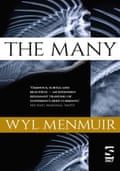
The book that made my year: Wyl Menmuir’s Man Booker-longlisted debut The Many, a mythopoeic maritime tale of loss and redemption in an unnamed fishing community. In such places you are never far from superstition, folklore and tribal history: the novel’s eerie ambiguity resonates many weeks after you’ve turned the last page. Brilliant.
Our book that deserved to do better: I shouldn’t complain, even though it’s in the job description, but I’d hoped for much greater initial reception for Phil Whitaker’s deeply moving and mysterious Sister Sebastian’s Library, the fifth novel from this exceptional writer. A tale of loss and recovery both personal and familial, it is an investigation into relationships that expands to consider what it is to become, and keep becoming, human.
I wish I’d published: KJ Orr’s gorgeous debut, Light Box (Daunt). She is a writer of piercing, crystalline prose; her short stories unveil compulsions, discords, collisions and tiny, intensely memorable brutalities. The collection is, to use a rather worn phrase, stunning.
Richard Beswick
Managing director, Little, Brown and Abacus
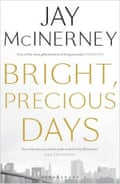
The book that made my year: There’s nothing like a surprise hit to lift the spirits. Translated fiction is in good health at the moment and we have had a great success with German novelist Nina George’s charming Little Paris Bookshop. Our non-fiction book of the year has been Mervyn King’s magisterial The End of Alchemy.
Our book that deserved to do better: Given the success of Deutschland 83 on TV we thought Nina Wilmer’s thrilling and moving memoir of her family’s life behind the iron curtain, and her mother’s escape from East Germany, would be reviewed and talked about more widely. We’ll hope that Forty Autumns fares better in paperback.
I wish I’d published: I thought Jay McInerney’s Bright, Precious Days (Bloomsbury) got a miserably po-faced reception. What was not to love about this sybaritic morality tale of adultery, fine dining and publishing hubris? Come on reviewers, live a little!
Lennie Goodings
Publisher, Virago
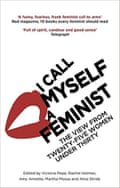
The book that made my year: In these strange times I find myself voracious for the written word – seeking solace, understanding, interpretation. The book we published in 2016 that gives me hope was our anthology I Call Myself a Feminist: The View from Twenty-Five Women under Thirty. This is the future and these women are bold and brave. I applaud them!
Our book that deserved to do better: The spirited and shocking memoir, Darling Days by iO Tillett Wright is a story about growing up in a loving but dysfunctional family in 1980s Lower East Side New York. It explores themes of love and neglect, identity and acceptance and ultimately hope and generosity, causing one to reflect on how resilient is the human will to survive and even flourish. I love this book.
I wish I’d published: The Invention of Angela Carter by Edmund Gordon (Chatto & Windus). I knew Angela and we publish some of her novels as Virago Modern Classics alongside her outrageously brilliant non-fiction, The Sadeian Woman. This wonderful biography brought back to me her voice, her wit, her mischievousness and her originality and told me much more, too. Excellent.
Jamie Byng
Publisher, Canongate
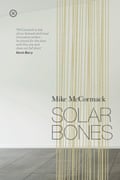
The book that made my year: Richard Reed’s inspiring and timeless If I Could Tell You Just One Thing … Encounters with Remarkable People and Their Most Valuable Advice. This book celebrates so many brilliant people through prose that is studded with great wit, generosity and insight. It’s one of those books I want to give to every single person I meet (and am close to succeeding!).
Our book that deserved to do better: Raoul Martinez’s Creating Freedom: Power, Control and the Fight for Our Future is a hugely ambitious debut by one of the most important young thinkers in this country. Before publication we had Brian Eno, Susan Sarandon, Johann Hari, Paul Mason, Russell Brand, Nick Davies and Helena Kennedy respond in glowing terms to this timely and forward-looking book, yet not a single British paper has reviewed it.
I wish I’d published: Mike McCormack’s Solar Bones (Tramp), a novel as bold as anything I’ve read, written in a language that felt fresher than rain. Although its winning of the Goldsmiths prize might suggest the book is experimental and therefore difficult, Solar Bones is enormously accessible, compelling and moving. The most rewarding novel I read this year by some way. I also wish we had published Hamilton, The Revolution (Little, Brown), an elegantly designed coffee table book that captures Lin‑Manuel Miranda’s genre-defying musical, the most exciting thing I have ever seen on the stage.
Juliet Mabey
Publisher, Oneworld
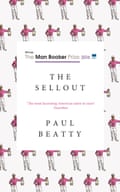
The book that made my year: Paul Beatty’s The Sellout, a whip-smart satire on racism, was a surprise Man Booker winner in an industry where comedy and satire rarely take away the gongs. That it should do so amid the post-Brexit referendum, pre-Trump presidential turmoil was particularly gratifying, ensuring that its message – which has rarely been more vital – will reach a wider audience than would otherwise have been the case. It’s a real delight that a writer of 20 years’ standing – and one as thoughtful as Paul – should finally break out in the UK.
Our book that deserved to do better: Shadow State by Alan White is a biting critique of the £80bn our government spends on outsourcing some of our most important public services, from prisons to hospital resources and even child protection. Remember the scandal of G4S’s bungled Olympic security contract? It really is a must-read book, and hopefully, with next year’s paperback publication, it will reach a much wider audience.
I wish I’d published: The Good Immigrant edited by Nikesh Shukla (Unbound), an important, moving collection of essays by 21 British BAME authors, and a very timely contribution to our understanding and appreciation of other lives in our Brexit paranoia about immigration.
Juliet Annan
Publishing director, Fig Tree and Penguin
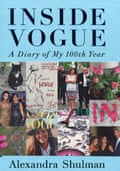
The book that made my year: Alexandra Shulman wrote the book I had been yearning for her to write for years, a nonfiction account of her life. But the diary format was entirely her idea, to tie in with Vogue’s centenary. Inside Vogue: A Diary of my 100th Year has already been called “one of the great social diaries of our time”. Funny and perceptive, it captures her two worlds, fashion and journalism, and it’s also quite grumpy. Most of all, it’s an inspiring book for women who love their work, that masquerades as a gossipy memoir.
Our book that deserved to do better: Oh cookery, you cruel genre. Such fun, yet so expensive and time consuming to produce, and so hard and haphazard to break out. Felicity Cloake’s The A-Z Of Eating is a beautifully written, lip-smacking book of original recipes. You must make her roquefort and pear cheesecake this Christmas, and when you have you will share my bewilderment as to why this book hasn’t sold in Jamie Oliver quantities.
I wish I’d published: Graeme Macrae Burnet’s His Bloody Project (Contraband) is a gripping novel that you think is true crime, and stirs you on the injustices of the Highland enclosures and their effect on crofters in the 19th century. But then the novel flips on its head right at the end, so that you are caught short by your own liberal smuggery. And after the grimness of this year, no one wants that …
Alexandra Pringle
Editor-in-chief, Bloomsbury
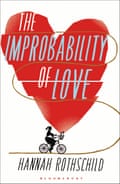
The book that made my year: There are two. First, the paperback edition of Hannah Rothschild’s divinely clever and witty debut novel The Improbability of Love, which won the Bollinger Everyman Wodehouse prize and was shortlisted for the Baileys. Second, Peter Frankopan’s erudite and extraordinary The Silk Roads, proving that serious books can have popular appeal.
Our book that deserved to do better: Caroline Brothers’ The Memory Stones. Brothers is a writer who tackles big themes, and whose novels help us to understand the world we live in. Her first, a tale of Afghan migrant boys, Hinterland, went to the heart of the refugee crisis four years before we acknowledged there was one. It received wonderful reviews and is even studied in schools. Her second is a powerful, searing, beautifully rendered story of the disappeared of Argentina. Despite the fact that it was a Radio 2 Book Club choice, featured on Radio 4’s Woman’s Hour and has many five-star reviews on Amazon, it was overlooked by the literary editors. I can only hope that when it is published in paperback it finally gets the review attention it deserves.
I wish I’d published: Graham Swift’s stunning Mothering Sunday (Scribner). How can anyone create such a layered and nuanced narrative in so few pages? It is about the most perfect novel you could wish to read, and should have made the Man Booker list.
Sara Hunt
Publisher, Saraband
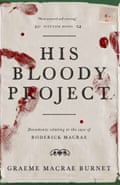
The book that made my year: Graeme Macrae Burnet’s His Bloody Project has been the most exciting literary fiction find on our list, with its combination of immersive storytelling, authentic language, historical detail and a bag of literary tricks that made it worthy of the Man Booker shortlist and the bestseller lists alike. Highly original and compelling, it’s a novel that simultaneously reinvents the form and recalls great works by Kafka, Dostoevsky and Stevenson, as well as exploring questions of truth and justice.
Our book that deserved to do better: Jim Crumley writes as beautifully as any contemporary nature writer, but with 30 books to his name, he has yet to break out to as wide an audience as he deserves. The Nature of Autumn reveals his attentive, open receptiveness to his surroundings and his extraordinary ability to translate moments of nature’s greatest – and smallest – glories to the page.
I wish I’d published: Melissa Harrison’s Rain: Four Walks in English Weather (Faber) is contemplative and observant. Long a habitue of rain-soaked upland and coastal northern landscapes, I enjoyed this introspective diversion through four gentler, tamer terrains, still teeming with wildlife despite human encroachment.
Paul Baggaley
Publisher, Picador
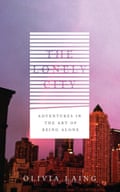
The book that made my year: I didn’t think Jessie Burton could improve on The Miniaturist, but The Muse proved she is a writer in for the long haul. It’s a wonderful novel, effortlessly spanning 1930s Spain and 60s London, and Jessie again shows that commercial success can reflect literary achievement. A less obvious choice is Garth Greenwell’s exquisite, dark novel What Belongs to You, a book that received rapturous responses from both critics and booksellers.
Our book that deserved to do better: I published a remarkable first novel, The Invisible Mile, by a New Zealand writer, David Coventry. As it is structured around the 1928 Tour de France, we published to coincide with this year’s race. But the book got lost in the sporting summer, and never attracted the critical attention it merited. Using the race to address the process of memory in regards to war and trauma, this is a literary novel of the highest order: Markus Zusak (author of The Book Thief) called it “bruising, beautiful and ultimately transcendent”. Here’s hoping the paperback will reach the readers it deserves.
I wish I’d published: I loved Olivia Laing’s The Lonely City (Canongate). Her writing is unique, choosing fascinating subjects and combining Sebaldian meditation alongside extraordinary interpretations of art, literature and personal experience. We published a fine novel about creativity and New York (Megan Bradbury’s Everyone Is Watching), and Olivia’s nonfiction interpretation of the city and its artists was the perfect counterpoint.
Nicholas Pearson
Publishing director, 4th Estate
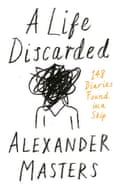
The book that made my year: Alexander Masters is working a corner of the biography genre all his own. A Life Discarded: 148 Diaries Found in a Skip continues the journey into unseen lives he started more than a decade ago with Stuart: A Life Backwards. Playful as ever, with its scraps of found materials, cartoons, strange photographs, A Life Discarded gently probes the nature of biographical writing while pulling a hidden life into plain view. The book was ecstatically received and sold well.
Our book that deserved to do better: I had high hopes for CE Morgan’s The Sport of Kings, a story about the legacy of slavery and the complexity of family set in rural Kentucky. I do think Morgan’s book has been overlooked. She is a great writer and everyone at 4th Estate waits to see what she does next.
I wish I’d published: Hisham Matar’s The Return (Viking) made a very big impact on me. A son’s elegy for his father, it is movingly written and brilliantly constructed in the way it circles the loss that haunts his family. Matar weaves into his terrible story a wider history of Libya and in particular its deeply troubled relationship with Italy, about which I was only vaguely aware.
Thomas Penn
Editorial director, Penguin
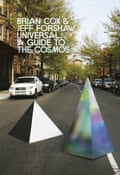
The book that made my year: Michael Lewis is one of the great writers of our age, and his The Undoing Project: A Friendship that Changed the World, about the relationship between Daniel Kahneman and Amos Tversky, scales new heights. Weaving Kahneman and Tversky’s revolutionary ideas about the human mind into a dazzling intellectual romance, it’s the work of a master storyteller. Equally mind-blowing is Brian Cox and Jeff Forshaw’s Universal: A Guide to the Cosmos. Their passion is infectious and there is something magical about the way they bring together the particular, the everyday and, well, the universal.
Our book that deserved to do better: Matt Desmond’s Evicted: Poverty and Profit in the American City, a blistering exploration of precarious life in the 21st century, received rave reviews. With paperback publication next year, more readers will have the chance to appreciate this exceptional book, whose power and commitment are matched only by the depressing urgency of its subject.
I wish I’d published: Catherine Fletcher’s life of Alessandro de’ Medici, The Black Prince of Florence (Bodley Head), deploys its considerable learning with the lightest of touches: a seductive, shimmering and significant retelling of a man whose rise to power was – even by the standards of early modern Europe – as unlikely as it was extraordinary.
Mitzi Angel
Publisher, Faber
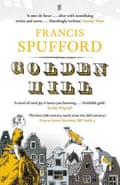
The book that made my year: The success of Francis Spufford’s first novel, Golden Hill, depends in no small part on his mastery of the well-punctuated sentence. Just look at those beautifully deployed semi-colons! I’m suspicious of pastiche, but Spufford’s feel for the 18th-century language he adopts is such that I feel ashamed of my suspicion. It’s been a great pleasure to see so many people fall in love with this exuberant, charismatic book.
Our book that deserved to do better: Frederick Seidel is a rather difficult character to deal with because, in the words of his American publisher, he will not lift a finger to promote his own work. While he is happy to read his poems for recordings, he refuses to give public readings. He does not accept prizes in person. He does no book signings. He does no publicity at all. His work has a passionate following in the US and many admirers here – and Mr Seidel is quite happy to leave it at that. Still, as his publisher in England and the promoter of his most recent collection, Widening Income Inequality, I would like his fierce, beautiful poems to be better known. But what can one do?
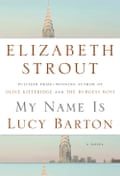
I wish I’d published: My Name Is Lucy Barton, by Elizabeth Strout (Viking), begins like an eerie fairytale: “There was a time, and it was many years ago now, when I had to stay in a hospital for almost nine weeks.” This novel, about the great distance one woman has travelled between childhood and adulthood, and about the bewildering variety of American experience, was a real discovery for me. It’s as if every sentence has found its way into life having almost been extinguished into silence. And each one of these simple sentences follows the other: quietly, inevitably and naturally. How does Strout get her measured narrator to speak with such urgency? How does this book manage to be so restrained and so miraculously open to the world? I don’t know, and I like not knowing.
